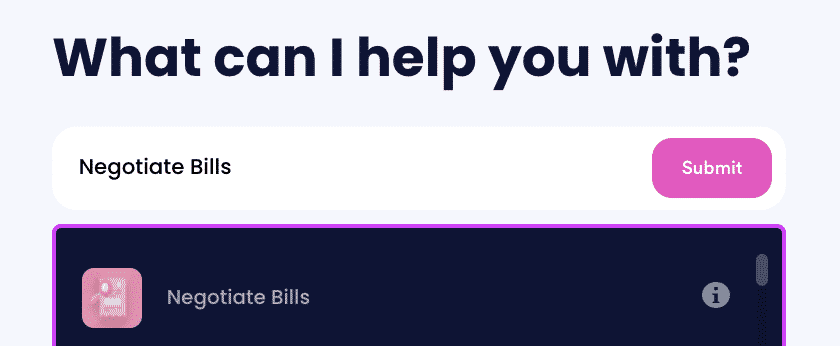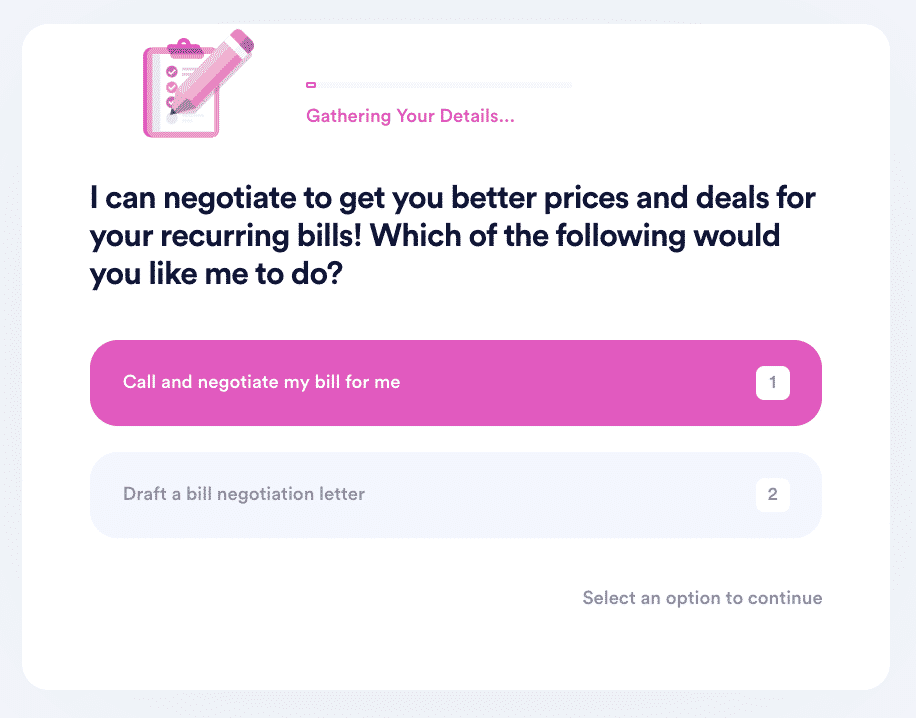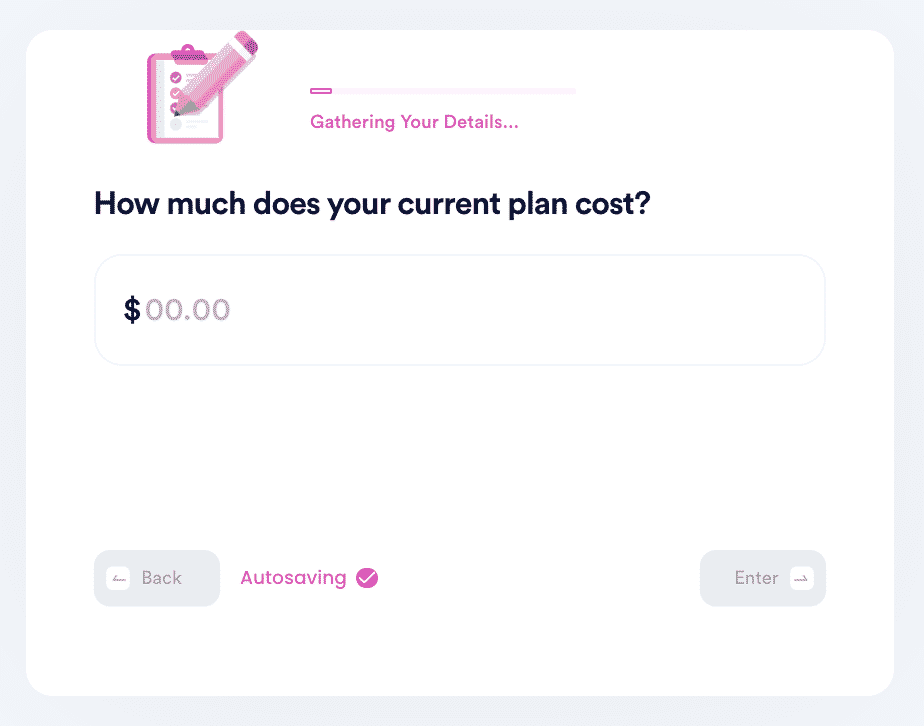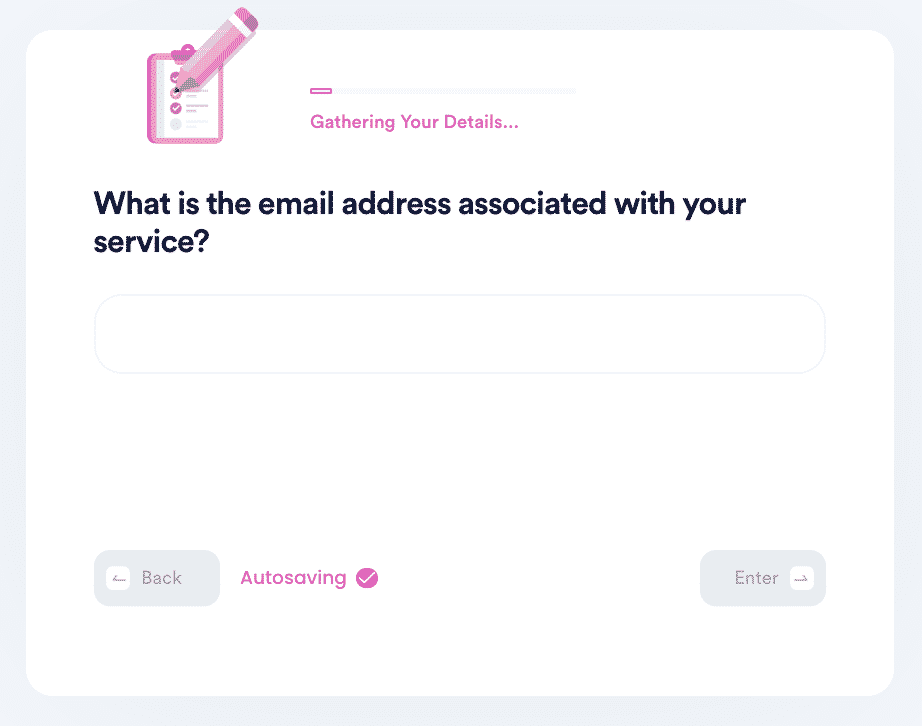What You Need To Know About Light Bill Assistance Programs
Are you frustrated by your recent electric bill? It seems like as soon as you get paid, your money's gone to bills. If you feel like you can't keep up with your utility bills, you're not alone. Recent US Census surveys estimate that as many as 33% of American adults are behind on household expenses, including rent, utilities, and medication. Fortunately, there is help available. If you need , DoNotPay can help you find resources.
Where Should I Start?
The best course of action will differ from person to person. Your inability to pay likely falls into one of these three categories:
| The inconsistent bill amounts are throwing you off your budget | Even out your statements with Average Monthly Payments or Budget Billing. |
| A large overdue balance | Request a payment arrangement. |
| Sudden loss of income or a general lack of resources | See if you qualify for government assistance. |
If you know you'll have the funds to pay your light bill this month, but you need a little extra time, you may be able to request a payment extension from your electric company. You can get a one-time grace period to avoid accruing late fees and carrying a balance forward into next month.
Predictable Payments
If you do not have an overdue balance, but your bill took you by surprise, you will likely have two options available through your provider to avoid a repeat in the future:
- Average Monthly Payments
- Budget Billing
If you can't make this month's electric bill because it's much more than you expected, you may benefit from enrolling in an Average Monthly Payment program. Your electric company will look at your usage history and charge you the average amount from a set time period, usually 12 months. If you have not been with the company for 12 months, they may look at households with similar demographics to get a starting value. This program gives you a much more predictable bill, saving you the shock of seasonal usage.
Budget Billing offers similar benefits. Instead of looking at a rolling average of your usage, you pay a set amount every month that is then reevaluated on a semiannual basis. In most cases, if your payment amount changes due to an increase or decrease in usage, you will have at least a month's notice from your provider. Your provider will also determine the schedule on which you have to pay any difference between the amount of energy you were charged for and your actual usage.
Overdue Balances
If you are able to make this month's payment but you have a past due balance hanging over your head, ask about a payment arrangement. Your provider may be able to stretch the amount you owe over a period of months so that you don't have to find the money immediately. To be eligible for a payment arrangement, you may need to meet the following criteria:
- Minimum outstanding balance (varies by provider)
- The last payment was not declined due to insufficient funds
- No default on previous payment arrangements within the last three months
- Not enrolled in payment programs like Budget Billing
Emergency Assistance From Your State
The federal government runs LIHEAP, the Low Income Home Energy Assistance Program, to help families cover the cost of heating or cooling their homes. Excessive heat or cold is not just uncomfortable but potentially dangerous to your health. While this program is not intended to cover your entire utility bill, you may be able to get a portion of your electric bill paid through LIHEAP if you heat your home with electricity. Eligibility requirements and grant amounts vary by state. Your state may specify:
- Maximum household income (usually tied to the federal poverty guidelines, but sometimes local income)
- Grants are only given during certain seasons of the year (summer, winter, or both)
- Maximum grant amount during the calendar year
Many providers also allow customers to donate to a fund that supports families who cannot pay their bills in a particular month. You can usually apply for these directly through your electric company or through a community action agency in your state.
Find a Way to Make Your Electric Payment With DoNotPay
You have a multitude of options available to you and no time to figure out which is the best fit. Let DoNotPay do the research for you in just four steps:
- Go to the Negotiate Bills product on DoNotPay.

- Choose whether you want us to call and negotiate your bill for you or send a bill negotiation letter on your behalf.

- Provide the details that will help us negotiate your bill including the company name and how much your current plan costs.

- Enter your contact information, including email, address, and phone number.

Leave all the work to DoNotPay. We'll fight for a lower bill for you. If you're one of the millions of Americans behind on basic household needs, we can help with more than just your i:
- Medical debt piling up? Get relief on your medical bills.
- Home heating costs increasing? Get help paying your gas bill.
- Promotional internet period ending? Let us negotiate with your provider for better rates.
- Need to change your cell phone plan? See how you can cut costs on a plan that meets your coverage needs.
Try DoNotPay today to get more breathing room in your budget!
 By
By